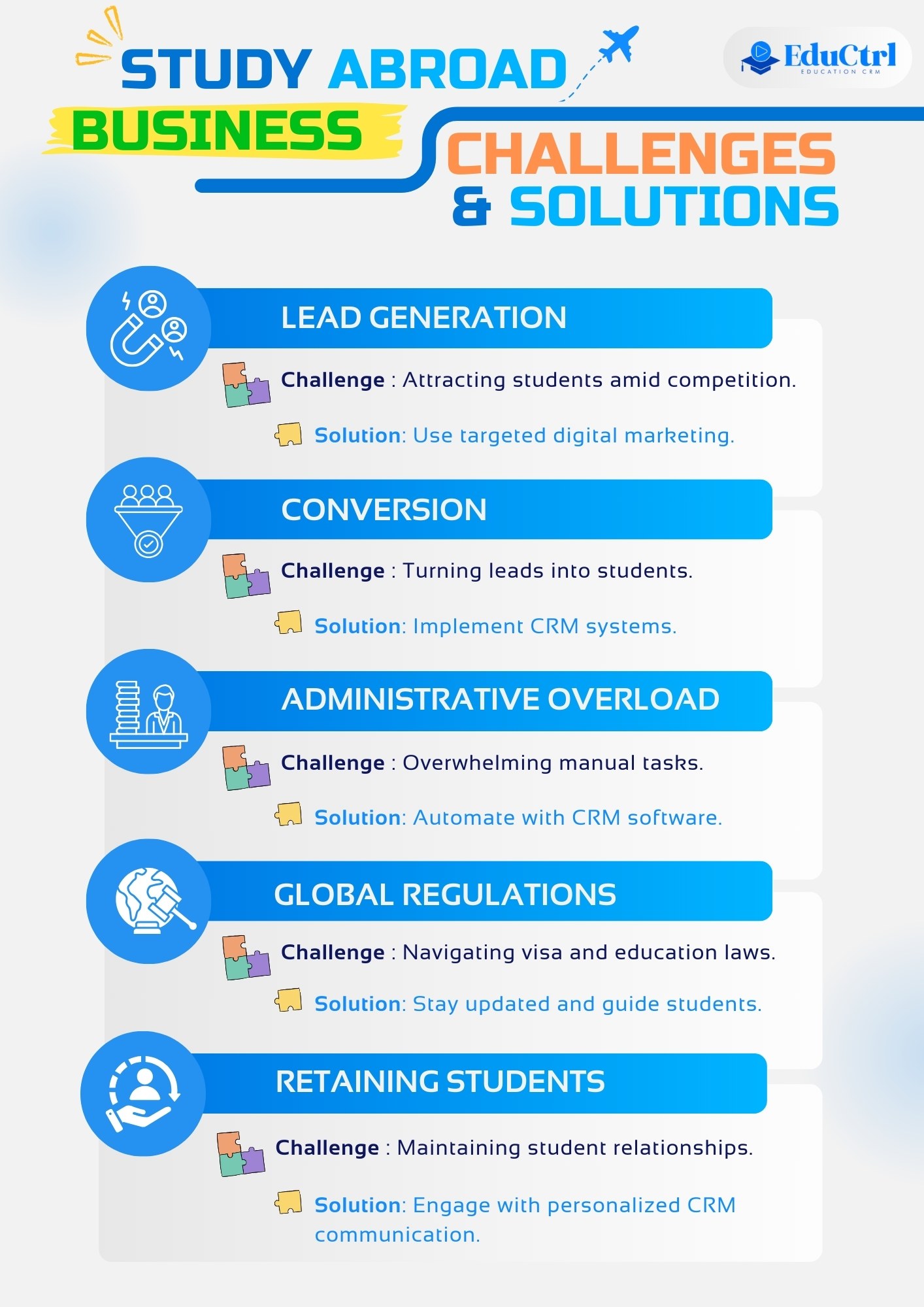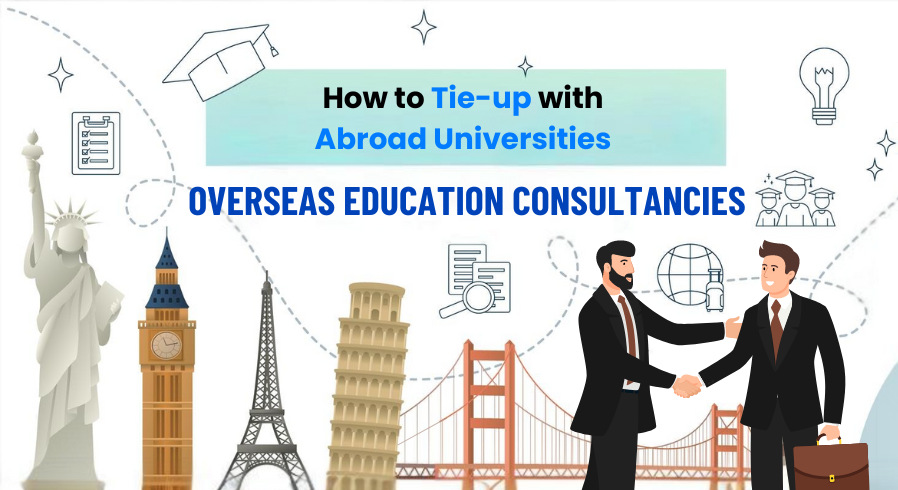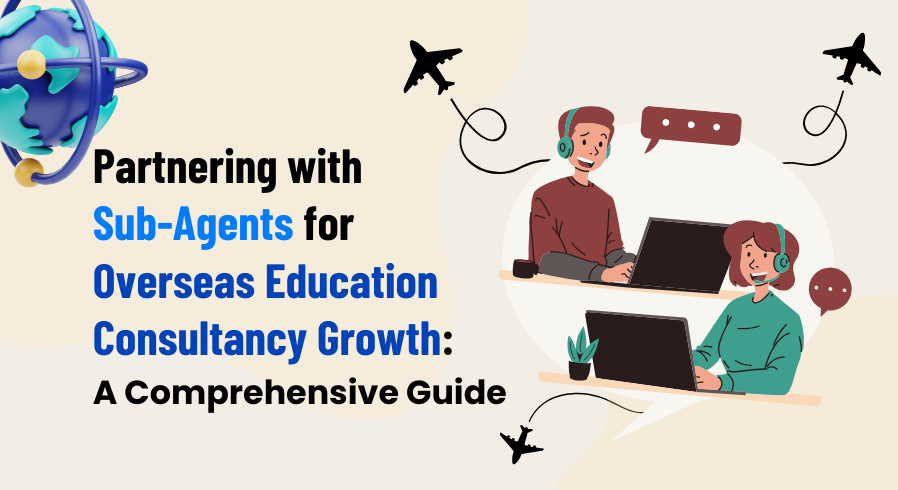Table of Contents

Global demand for higher education continues to boom. Yet, many study-abroad consultancies and educational consultants are overwhelmed with data overload when it comes to student recruitment as well as having operational challenges in enrolling students at a large scale quickly. Solutions such as student registration software can help with this and play a critical role in addressing these challenges. In this blog, we will explore key obstacles faced by study-abroad businesses and offer solutions to navigate them successfully.

1. Regulatory Hurdles

Challenge:
One of the main difficulties is dealing with different countries’ visa requirements and political climates as well as solving the legal issues in education in several countries. Every country administering student visas has its regulations on student visas, admissions and compliance that are subject to change now and then.
Solution:
As a means of creating a strong and solid relationship with potential clients, consumers and stakeholders in the business, it is recommended that additional investment be made in the construction of relations with immigration consultants, immigration lawyers and key speciality immigration countries. A minute tracking and recording system should be put in place so that one can be updated with the current legal developments. It is also necessary for businesses to establish country-specific teams which will be of great help to students by offering them correct localized information.
2. Financial Barriers for Students

Challenge:
Many students face the financial aspect of studying abroad since costs involve unreasonable tuition fees, living costs, and travel costs that can be beyond the reach of several students. As a result, the high cost hinders the ability of a student to follow his or her dreams of studying in another country.
Solution:
Informing students about scholarships, financial aid or loans available may be very helpful to them. Using students’ custom credit to change financial relations between students and financial institutions worldwide to promote flexible and low-cost financing of students’ education can help make studying abroad possible. A few others also develop specific scholarships to tap customers with potential for their products and services.
3. Marketing to a Global Audience

Challenge:
It is also important that college marketing contacts the students hailing from different cultures and regions of the country. Also, the knowledge of the local educational needs and the priorities may diverge significantly, and, thus, the idea of the universal effective marketing concepts would be incorrect.
Solution:
It is suggested that businesses create a local-specific digital marketing strategy and focus on local-specific platforms such as WeChat in China or WhatsApp in Latin American countries. There is no better way of building trust with prospective students than working with influencers and student ambassadors. It is also important to stress the importance of cultural relevancy when creating advertisements and any other promotional materials for a particular group of consumers.
4. Student Expectations and Satisfaction

Challenge:
Student expectations and realities do not correlate with one another, a situation that is devastating to the business since it results in dissatisfaction. The customers are commonly students who have a set of expectations including uncontrollable expectations such as the expectation of a smooth transition, expectations regarding the quality of education and expectations concerning social life on campus which could be unmet.
Solution:
Transparency is key. Some questions and answers may help to set proper expectations for students like what are the details about the academic programs, and cultural and living conditions in the country. Continuous support throughout their journey, including pre-departure orientations, on-ground assistance, and mental health resources, can improve overall satisfaction.
5. Competition and Differentiation

Challenge:
This industry is growing but at the same time, it is quite saturated with the increasing number of agencies and platforms existing on the market. What to do to make oneself different from the rest of the world, is a challenge that every company in the world has to face.
Solution:
Providing individual services can act as a competitive edge for your business. Students may benefit from the following additional services, created individual Curriculum Vitae, academic consultation based on the set objectives, tutoring. Further, the use of technology including AI-based matching tools can improve the service provision and act as a competitive advantage.
6. Dealing with Geopolitical Risks

Challenge:
Some reasons include political instabilities, diplomatic crises, or even economic sanctions that may impose a serious threat to the students’ exchange. It means that such events as travel bans, border closures, and conflicts disrupt the processes of studying.
Solution:
The existence of contingency plans for students like, a change of study destinations for example, online and on-campus learning or even having changes in learning models in light of geopolitics can easily minimize the risks. Risk diversification is also created by expanding the served markets and the lack of concentration in one country as the main market.
7. Cultural Adaptation and Mental Health

Challenge:
Universities abroad midst of cross-cultural transition expose students to culture shock as well as poor mental health. This will definitely impact their grades and educational experience especially where the result will be associated with the businesses that sponsored the studies.
Solution:
More attention should be paid to preparing study-abroad students, and it is also necessary to pay attention to the importance of their psychological counselling. The services of student groups, cultural integration services and mental health counsellors can be procured from local organizations and this will help students transition to their new environment comfortably.
8. Technological Advancements and Cybersecurity

Challenge:
As the study abroad process becomes more and more web-based, through virtual campus visits, remote advising, and online application filing – the protection of students’ information becomes an issue.
Solution:
Employers should ensure maximum protection of their data through encryption and effective means of data storage. Performing security checks as well as adherence to Privacy laws (for example General Data Protection Regulation) will go a long way in engaging confidence from students and partners. Further, integrating AI and machine learning processes the application and optimizes it further while reducing errors.
Key Market Challenges and Solutions

India: High Demand and Competition
- Challenges: Intense competition and credibility concerns.
- Solutions: Use enrollment software to automate applications, provide transparency, and offer cost-effective study options through data-driven insights.
Mexico: Bureaucratic Hurdles
- Challenges: Long application procedures and expensive study options.
- Solutions: Streamline the application process, offer visa assistance, and integrate financial planning tools in the software.
Colombia: Limited Awareness and Language Barriers
- Challenges: Language proficiency and lack of information.
- Solutions: Use multilingual software interfaces and provide language readiness courses tracked through the software.
Brazil: Economic Constraints
- Challenges: High cost of studying abroad with limited financial aid.
- Solutions: Track scholarships through software and provide budget-friendly study options.
Nigeria: Large Volume of Applications
- Challenges: Managing numerous applications and documents.
- Solutions: Use enrollment automation, document management, and real-time student tracking to streamline the process.
Pakistan: Limited Career Guidance
- Challenges: Lack of course and university guidance.
- Solutions: Use integrated counselling tools and personalized recommendations based on student data.
Ghana: Visa Rejections
- Challenges: Frequent visa rejections.
- Solutions: Offer visa support tools and pre-visa counselling to improve approval rates.
Singapore: High Expectations
- Challenges: Competitive market with diverse student expectations.
Solutions: Provide tailored services and high-quality engagement using data analytics.
Conclusion
The study abroad business offers immense opportunities but comes with its own set of unique challenges. By staying adaptable, using the right technology, and focusing on building strong student relationships, businesses can thrive in this competitive and complex industry.









